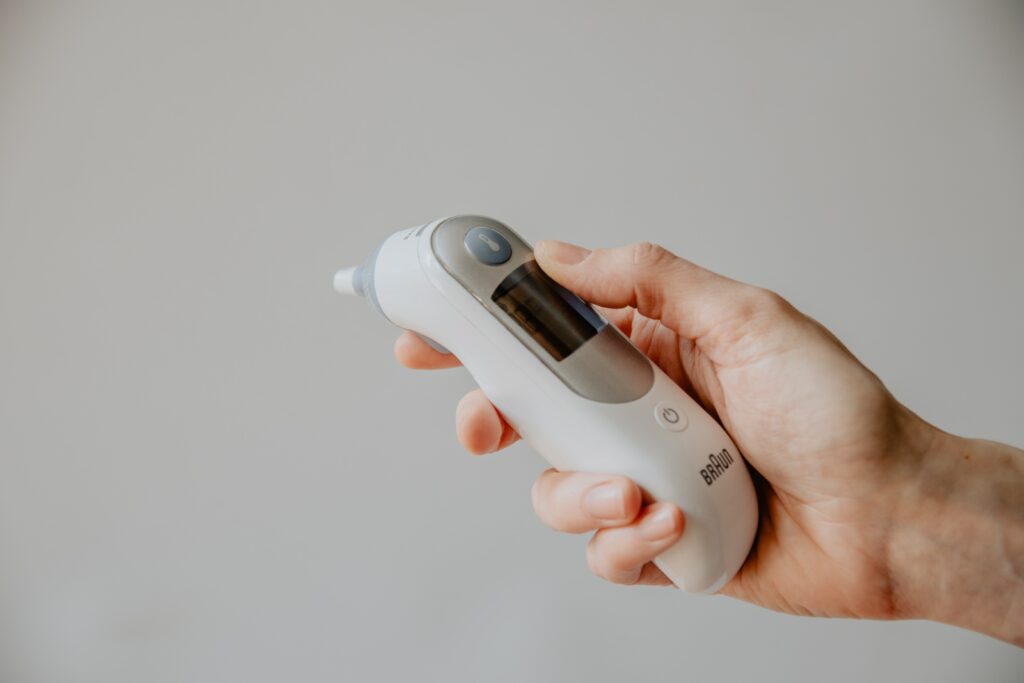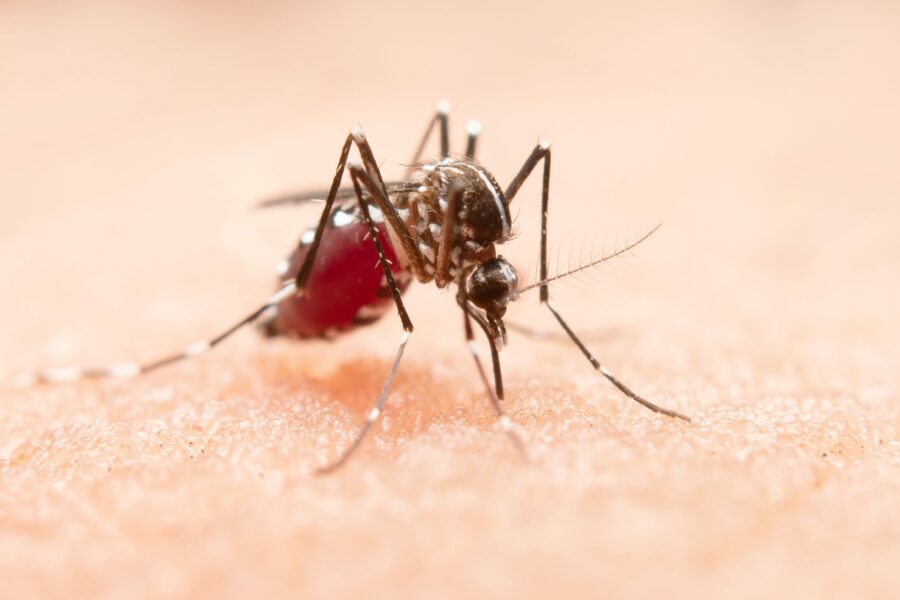It’s dengue fever season, which means that parents have to be extra careful to prevent their little ones from getting sick. Dengue can be a scary illness, especially if the symptoms become worse. However, being proactive can make a huge difference. Because dengue cases are on the rise, it’s best for parents to be extra vigilant and pay close attention to any dengue symptoms their children are exhibiting.
Table of Contents
ToggleWhat is dengue fever?
Dengue fever is a disease caused by a virus that is transmitted by mosquitoes. It’s one of the leading causes of illness and death in many tropical, subtropical, and even temperate countries. Dengue most commonly occurs in areas with large populations of Aedes aegypti mosquitoes, such as in the Americas, Africa, and Asia.
This severe, flu-like illness affects infants, children, and adults. Dengue symptoms are quite similar to the symptoms of other illnesses, which is why it’s easy to mistake them for symptoms of a different disease. However, dengue fever can worse or even become deadly if the symptoms get worse. Thus, it’s important to know what dengue fever symptoms are to make sure that you can take action sooner rather than later.
How is dengue transmitted?
The Aedes aegypti mosquito species is the main culprit in transmitting dengue fever. It has white stripes on its legs, which set it apart from other mosquito species. Originally found in Africa, this species spread throughout the world through the slave trade, and can now be found in tropical, subtropical, and even temperate climates.
These mosquitoes are known vectors for a variety of pathogens that can infect humans as well as animals. Not only can they spread the virus that causes dengue fever, but they can also spread the Zika, yellow fever, and West Nile viruses, among many others.
An Aedes aegypti mosquito can spread the four types of dengue fever viruses in particular if it bites a person who is already infected. It can then spread the virus by biting other people. Thus, preventing mosquito bites can help prevent dengue fever, as well as the other illnesses spread by this mosquito species.
Stages of dengue fever
There are three stages of dengue fever: the febrile stage, the critical stage, and the recovery or convalescent stage. All these stages, however, are preceded by the incubation stage of the dengue virus.
Incubation
The incubation stage of the dengue virus starts when you are infected. During this stage, the virus is already inside the body, but dengue symptoms haven’t started yet.
On average, the incubation time for the dengue virus is 4 to 10 days. During this time, the virus is multiplying and spreading through the person’s body. You won’t exhibit dengue symptoms during this time, so you’ll likely be unaware that you’ve been infected unless you get tested.
An infected person won’t always develop dengue symptoms, and many cases of dengue are asymptomatic. However, if symptoms do develop, they’ll go through the following three stages.
Febrile stage
The febrile stage is the first stage of symptomatic dengue fever, which lasts for 2 to 7 days. You can check out the dengue symptoms that you’ll need to watch out for during this stage below.
Critical stage
The critical stage occurs after the febrile stage, so you’ll need to watch out for it 2 to 7 days after the onset of dengue symptoms. Typically, it lasts for 24 to 48 hours. Most patients start to improve during this stage, but in rare cases, the illness can develop into severe dengue.
Thus, it’s important to keep a close eye on the patient’s symptoms during this stage. They can progress to severe dengue and can be highly dangerous if left unchecked.
Recovery stage
The recovery stage comes after the critical stage. During this stage, the patient will start to stabilize, and the body will start working on healing after fighting off the infection.
7 dengue symptoms to watch out for

In many cases, the dengue fever symptoms are quite mild and manageable. Many cases are also asymptomatic, which means that though a person has been infected by the virus, they are not exhibiting any dengue fever symptoms and are not feeling ill.
There are specific dengue symptoms that you should watch out for, and they can range from mild to severe. Because of its symptoms, it can be easy to mistake dengue for a severe case of the flu. Keep an eye out for the following:
- A high fever, commonly with a temperature of 40 degrees Celsius (104 degrees Fahrenheit)
- Vomiting and nausea
- Severe headache
- Pain behind the eyes
- Pain in the muscles and joints
- Swollen glands
- Dengue rashes
In most cases, dengue symptoms disappear after about a week. Even so, it’s still important to make sure that you remain alert. The disease can get worse very quickly, and in rare cases, it can become fatal in a matter of hours.
Severe dengue fever warning signs
Dengue treatment and early diagnosis are critical to preventing serious complications and death. Severe dengue is a life-threatening condition that can occur during the most critical stage of the illness. This stage can last for 24 to 48 hours and can be extremely dangerous. If you or someone in your family has dengue fever, it is important to seek medical help immediately.
These are the severe dengue symptoms that you and medical professionals should watch out for:
- Fatigue and restlessness
- Bleeding in the gums and nose
- Bruise-like bleeding under the skin
- Vomiting
- Blood in the vomit, urine, and stool
- An enlarged liver
- Severe pain in the stomach
- Difficulty breathing
How to deal with severe dengue
If you experience any of these severe dengue symptoms, it is important to see a doctor immediately. Dengue fever can progress to a more severe form, known as dengue hemorrhagic fever, which can be fatal.
Because dengue symptoms are similar to other illnesses, such as COVID-19, it’s important to get tested and see a doctor. You can get tested for COVID-19 to rule it out, but because it’s dengue season, it’s best to also keep in mind that dengue is a real possibility.
Critical phase and observation phase
If the patient starts exhibiting these dengue symptoms during the critical phase, they should be under observation for the next couple of days. This way, they’ll be able to quickly receive the medical care they need, which can be helpful in keeping the illness under control.
Once the worst is over, however, the patient will still need to be kept under observation while they recuperate.
Medical attention is necessary in cases of severe dengue. If you or your child starts exhibiting these symptoms, don’t hesitate to seek medical help, especially when severe dengue symptoms start to appear.
Dengue in babies
Just as in adults, the symptoms of dengue in babies can be difficult to distinguish from the symptoms of other illnesses. It can be especially difficult because babies are unable to verbally communicate what they’re feeling. Thus, it’s up to you as the parent to watch out for the possible signs of dengue fever.

How to tell if your baby has dengue
Dengue in babies can be scary. If your baby develops a fever, contact their paediatrician right away. However, you should also check if their temperature drops lower than 36°C. Seek medical help if your baby develops a fever or experiences a drop in temperature, along with the following dengue fever symptoms:
- Lethargy and/or irritability
- Bleeding in the gums or nose
- Vomiting three times or more in the span of 24 hours
- Bruising
- Dengue rashes
Keeping your baby comfortable
Because dengue symptoms can quickly become severe, make sure that you keep a close eye on how your baby is doing in the first few days after the onset of symptoms. Give your baby acetaminophen to reduce their fever, and give them cool sponge baths at least once a day to bring their temperature down.
Additionally, make sure that your baby is well-hydrated. Dengue in babies can be dehydrating, woIf your baby is younger than 6 months and not allowed to drink water yet, ask their paediatrician about what you can do to prevent dehydration.
Dehydration in babies
Dehydration can also be dangerous and can make your child’s dengue fever worse. Thus, it’s also important to make sure that you know what the signs of dehydration are.
Contact your child’s paediatrician if you see the following signs of mild dehydration:
- Less frequent urination, ending up with fewer than 6 wet diapers a day
- Fewer tears than usual, or no tears when crying
- Dryness in the mouth, tongue, and lips
- Unusual soft and sunken spot in the head
Bring your baby to the emergency room if you see the signs of severe dehydration:
- Lethargy
- Unusual fussiness
- Urinating only once or twice a day
- Sunken eyes
- Cold hands and feet
How do you know if it’s dengue?
Since the dengue symptoms are similar to the symptoms of other illnesses, it can be difficult to tell for sure. Additionally, you won’t be able to diagnose dengue by yourself. The best time to get diagnosed is during the first week of illness. Your doctor will collect samples, which will then be tested through one of several methods.
If you or your child develops dengue symptoms a few days after visiting an area known to have a high number of dengue cases, then consider dengue fever to be a possibility. Currently, there are over three times as many dengue cases in Singapore this year as there were in the whole of last year, and it’s only July.
Is dengue contagious?
You won’t catch dengue directly from another person. You can come into contact with someone who has dengue, but you won’t catch the disease from that person via droplets or anything like that.
However, if a mosquito bites an infected person and subsequently bites you, you could get infected. Thus, it’s important to find out if you’re living in a dengue cluster, or if you’ve recently been to an area with a significant number of dengue cases.
If you’re currently pregnant, it’s especially important to take steps to avoid dengue fever. Pregnant women infected with dengue can pass the virus to the fetus during pregnancy or childbirth. This can cause low birth rate, premature birth, and even the death of the fetus, among other things.
Whether or not you’re pregnant, it’s best to simply avoid going to areas that are known to be high-risk for dengue. If it’s not avoidable, there are things you can do to prevent dengue by avoiding mosquito bites.
Dengue clusters
According to the National Environment Agency, there are several areas in Singapore that are considered to be at high risk for dengue fever. The NEA has a map showing these high-risk areas, so you can see if you live or were recently in a high-risk dengue cluster.
Tracking dengue clusters
In a nutshell, dengue clusters are groups of cases that occur in close proximity to each other. According to the NEA, a dengue cluster is formed when two or more cases located within 150 meters of each other start developing dengue symptoms in the span of 14 days. This indicates active transmission, and may need intervention.
The NEA tracks these clusters and have an interactive map that regularly updates information. High-risk areas have at least ten cases, up to over a hundred cases. If you’re not sure if you’re living in a cluster, check out the link above to see map.
Dengue clusters form when enough people are infected in one area that the mosquitoes have a large population to feed on. This makes it easier for them to spread the virus from person to person. It’s important to be aware of the risk of dengue clusters so you can take steps protect yourself and your family from being bitten by mosquitoes and help prevent further outbreaks.
What to do if you live in a dengue cluster
If you live in a dengue cluster, it is important to take precautions to avoid being bitten by mosquitoes. You can protect yourself and your child by putting on long sleeves and pants, especially outdoors or in rooms without screened windows. Additionally, you can use mosquito repellent and stay indoors during the times of the day when mosquitoes are most active.
It’s important to remember, however, that while mosquitoes are most active during the early morning hours, they can infect you at any time of the day.
If you are going outside, make sure to use an EPA-registered insect repellent. Make sure that you consult your child’s paediatrician to get recommendations for mosquito repellents that are safe to use on babies and toddlers.
Mosquitoes breed in standing water so it is important to empty any containers that may hold water. You can also put a lid on any water containers to prevent mosquitoes from laying their eggs on the water. Additionally, you can install window screens and door sweeps to keep mosquitoes out of your home.

Another thing you can do to keep mosquitoes away from your home is to keep surfaces clean. Various surfaces can host mosquitoes, such as window screens, doos knobs, door frames, and the like.
You can use a variety of cleaning products to keep your home in top shape and safe from pathogens. Since the COVID-19 pandemic is still ongoing, keeping surfaces in your home clean can also help prevent COVID-19 infection.
With the help of Supermom’s Free Home Cleaning Set, you’ll be able to keep your home clean and free of pathogens that can make your family sick. Protect your family’s health at no cost in just a few steps.
Dengue fever treatment
Presently, there is no specific dengue treatment, but early diagnosis and supportive care can improve outcomes. The best that can be done is to help the patient weather the storm. Rest and hydration are particularly important, even in cases where dengue symptoms are mostly mild.
Medications
Over-the-counter pain killers and fever reducers can also help, though it’s best to administer these under the guidance of a medical professional. These can help with fever and aches, so the patient can be more comfortable.
Is paracetamol good for dengue fever? Yes. In fact, you should use paracetamol or acetaminophen instead of NSAIDs like ibuprofen, which can thin out the blood. This can put the patient at increased risk of hemorrhage. To be safe, consult your doctor or your children’s paediatrician ensure that you deal with these dengue symptoms the right way.
Recovering from dengue
For the most part, dengue goes away on its own after a week or so. Dengue symptoms also tend to be mild in most cases, and many of those infected don’t need to be hospitalized. If you have a mild case of dengue, you can stay home and take pain killers and fever reducers as necessary.
Like other viral illnesses, there isn’t a way to make the illness go away more quickly. You’ll just have to let it run its course, keep an eye on these dengue symptoms, and be ready to seek medical help if the symptoms get worse. If your child has dengue, keep them comfortable and listening to their paediatrician’s advice is your best course of action.
It’s important to remember that in more severe cases, seeking medical help can help vastly improve the patient’s condition. If you’re unsure about how to proceed, ask for guidance from medical professionals with experience in dealing with dengue.
Dengue fever vaccination
While there is a dengue fever vaccine, it does come with a number of limitations. In Singapore, Dengvaxia is approved only for people aged 12 to 45.
Additionally, it can only be administered to individuals who have already been previously infected with dengue. It also can’t be administered to anyone who is currently pregnant or breastfeeding, taking immunosuppressants, or has a weak immune system.
If your child is younger than 12 and has never had dengue fever before, the best thing you can do is to prevent mosquito bites. Since mosquitoes are quite small and can move quickly, you won’t always be able to avoid Aedes aegypti mosquitoes. Additionally, there’s really no way to tell if a mosquito is carrying any virus or not.
Thus, prevention is indeed better in this case, because there currently isn’t even a cure. Take steps to prevent mosquito bites and make efforts to reduce the population of mosquitoes in your home.
References
- https://www.mayoclinic.org/diseases-conditions/dengue-fever/symptoms-causes/syc-20353078
- https://www.who.int/news-room/fact-sheets/detail/dengue-and-severe-dengue
- https://www.straitstimes.com/multimedia/graphics/2022/06/singapore-dengue-cases/index.html?shell
- https://www.nea.gov.sg/dengue-zika/dengue/dengue-clusters
- https://www.wrbu.si.edu/vectorspecies/mosquitoes/aegypti
- https://www.hsa.gov.sg/docs/default-source/hprg-vcb/pem-pmg-pac/dengvaxia-pmg-v2_30082018.pdf
- https://www.cdc.gov/dengue/transmission/pregnancy.html
- https://www.cdc.gov/dengue/symptoms/infant.html
- https://www.cdc.gov/dengue/healthcare-providers/clinical-presentation.html




